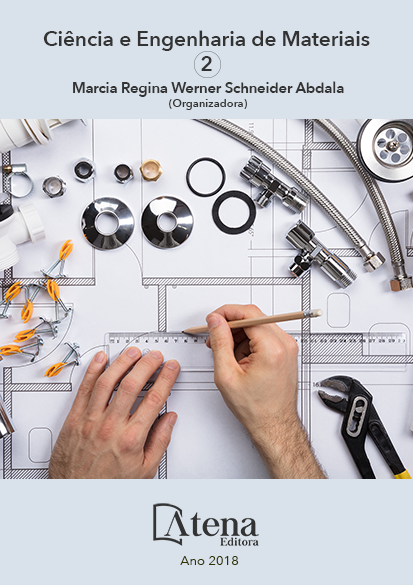
ANÁLISE DA DUREZA E MICROESTRUTURA DO AÇO ABNT 1045 APÓS TÊMPERA E REVENIMENTO
O aço ABNT 1045 apresenta uma
ampla aplicabilidade devido ao seu baixo
custo e boa resistência mecânica. Pode
ser aplicado na indústria mecânica para a
fabricação de elementos de máquinas como
eixos, engrenagens, parafusos, porcas e
pregos. Para este material adquirir melhor
resistência mecânica é necessário submetelo a tratamentos térmicos, sendo os mais
utilizados: têmpera e revenimento. O objetivo
deste trabalho é analisar a resistência
mecânica adquirida pelo aço ABNT 1045 após
tratamentos térmicos através de testes de
dureza e metalografia para verificar as fases
presentes antes e após os tratamentos. Para
isso três amostras do material foram obtidas a
partir de um tarugo, nas quais, uma amostra se
manteve sem tratamento térmico, sendo esta a
amostra de referência, e outras duas amostras
submetidas a tratamentos térmicos. Dentre as
amostras tratadas, uma foi submetida apenas
ao tratamento de têmpera e a outra têmpera
e revenimento. Após os tratamentos térmicos
todas as amostras foram analisadas através de
metalografia, sendo para isso, embutidas em
baquelite, lixadas e polidas, etapas necessárias
para a análise. Em seguida as amostras foram
submetidas a teste de dureza. Os resultados
obtidos foram os esperados para os tratamentos
citados, sendo possível observar, através
das metalografias, as fases ferrita, perlita e
martensita, além da mudança na resistência
mecânica comprovada pelos testes de dureza.
ANÁLISE DA DUREZA E MICROESTRUTURA DO AÇO ABNT 1045 APÓS TÊMPERA E REVENIMENTO
-
DOI: Atena
-
Palavras-chave: aço 1045, dureza, tratamento térmico
-
Keywords: 1045 steel, hardness, heat treatment
-
Abstract:
ABNT 1045 steel has a wide
applicability due to its low cost and good
mechanical resistance. It can be applied in
the mechanical industry for the manufacture of
elements of machines like axles, gears, screws,
nuts and nails. For this material to acquire better
mechanical resistance it is necessary to subject
it to thermal treatments, being the most used:
tempering and tempering. The objective of this
work is to analyze the mechanical strength
acquired by ABNT 1045 steel after thermal
treatments through hardness and metallography
tests to verify the phases present before and
after the treatments. For this, three samples
of the material were obtained from a billet,
in which, one sample was kept without heat
treatment, being this the reference sample, and
other two samples submitted to thermal treatments. Among the treated samples, one
was submitted only to the tempering treatment and the other tempering and tempering.
After the thermal treatments all the samples were analyzed through metallography,
being for this, embedded in bakelite, sanded and polished, necessary steps for the
analysis. The samples were then subjected to a hardness test. The results obtained
were the expected ones for the mentioned treatments, being possible to observe,
through the metallographies, the phases ferrite, perlite and martensite, in addition to
the change in the mechanical resistance proven by the hardness tests.
-
Número de páginas: 15
- João Paulo Montalván Shica
- Matheus Henryque Almeida e Silva


